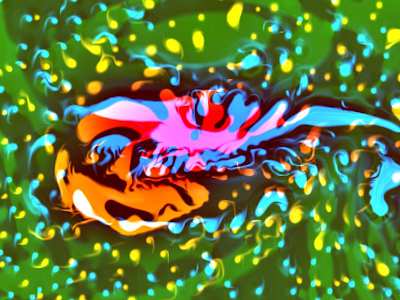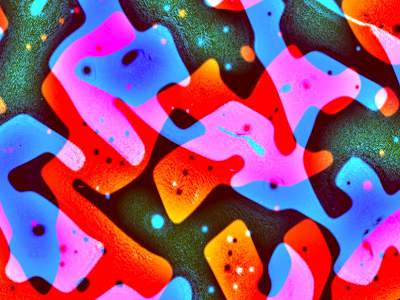| Interactive Fluid Simulation in WebGL |
| Written by David Conrad | |||
| Sunday, 26 February 2012 | |||
|
If you need an example that proves that the web without WebGL would be a much duller place, look no further. This is a mesmerising and addictive interactive fluid simulation that you can waste hours playing with. The Chrome Experiments site hosts lots of interesting graphical ideas, but Felix Woitzel's fluid simulation has to be ranked among the best. It uses WebGL, which is the standard way of creating HTML5 3D graphics, together with the use of the GPU.
What it does is mix a standard 2D fluid simulation with another 2D reaction-diffusion simulation of the "Turing Pattern" type. The patterns aren't true Turing patterns as they are based on a simpler one-component reaction, but let's not split hairs. The combination of the two simulations produces something complex and yet very physical. Being able to interact with it means that you can use the mouse to stir the mixture and generally perturb the simulation. If you want to see what it all looks like view the following short video:
If you think it looks fun, you are right. But being able to interact with it is even more fun. To do so you need to visit the experiment's page using either the latest version of Chrome or Firefox. Don't bother even trying to use Internet Explorer as Microsoft doesn't support WebGL and, at the moment, has no intention of ever supporting it. As we have commented before, for Microsoft to not support WebGL seems to make it essential to switch to another browser that does. Who wants to miss out on so much fun? Let's hope Microsoft wakes up to the fact that its browser is being left behind by simply not competing.
More InformationFurther ReadingMicrosoft no WebGL support - it's insecure WebGL 1.0 finalized - the state of play A Programmer's Guide to Canvas
Comments
or email your comment to: comments@i-programmer.info
To be informed about new articles on I Programmer, subscribe to the RSS feed, follow us on Google+, Twitter, Linkedin or Facebook or sign up for our weekly newsletter.
|
|||
| Last Updated ( Saturday, 11 August 2018 ) |



